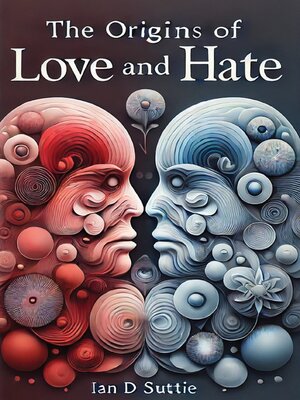
Sign up to save your library
With an OverDrive account, you can save your favorite libraries for at-a-glance information about availability. Find out more about OverDrive accounts.
Find this title in Libby, the library reading app by OverDrive.



Search for a digital library with this title
Title found at these libraries:
| Library Name | Distance |
|---|---|
| Loading... |
The Origins of Love and Hate by Ian D. Suttie offers a groundbreaking exploration of the psychological roots of human emotions, particularly focusing on love, hate, and their profound influence on relationships and mental health. Written in the early 20th century, this influential work challenges Freudian views of psychoanalysis by emphasizing the importance of emotional connection and social bonds in psychological development. Suttie's central thesis is that human beings have a fundamental need for affection, which shapes emotional health from infancy through adulthood. He argues that early disruptions in nurturing relationships—particularly between mother and child—can lead to emotional conflict, producing feelings of rejection, hostility, or repressed hate. Suttie critiques Freud's emphasis on instinctual drives, such as the death instinct, and instead highlights the role of love and attachment in shaping human behavior and personality. Throughout the book, Suttie provides insights into how unresolved emotional needs manifest in adult relationships, often causing psychological distress and alienation. His work foreshadows later developments in attachment theory and relational psychoanalysis, emphasizing the healing potential of empathy, love, and meaningful connection in therapeutic practice. Dr. J. A. Hadfield's foreword contextualizes Suttie's ideas within the broader field of psychoanalysis, acknowledging the originality and influence of his thought. The Origins of Love and Hate remains relevant to psychologists, therapists, and readers interested in human behavior, offering timeless insights into the emotional foundations of relationships. This work invites readers to reflect on how love, attachment, and rejection shape human experience and suggests that healing comes through restoring emotional bonds, making it an essential read for those interested in the psychology of emotions and relational well-being.







